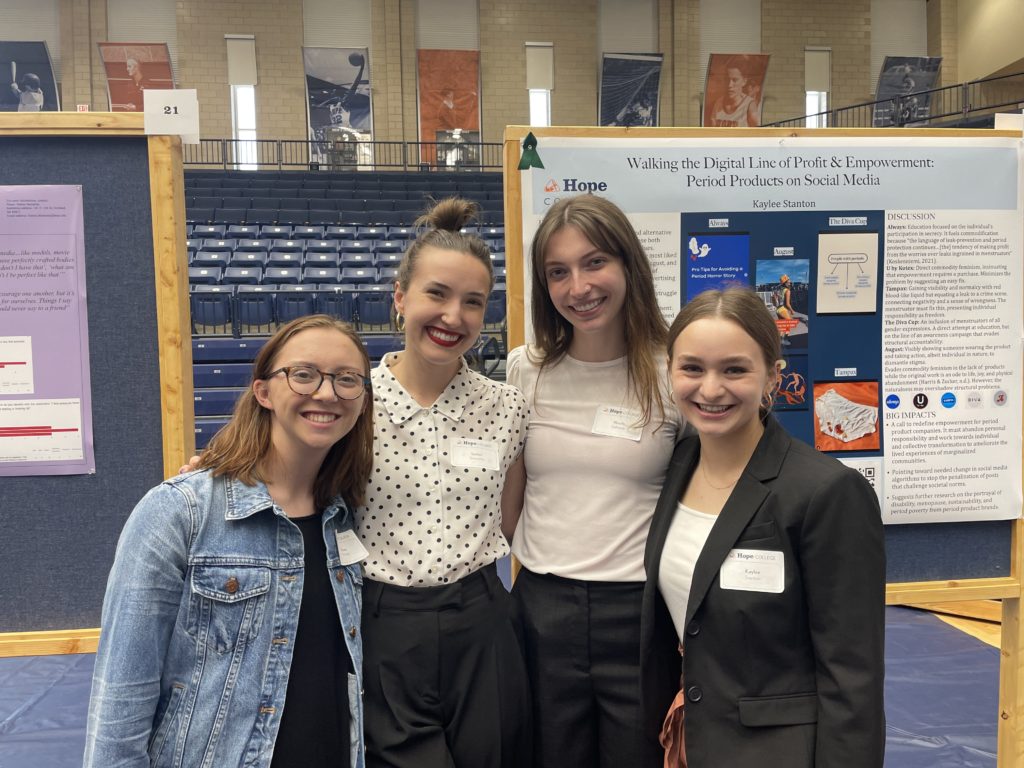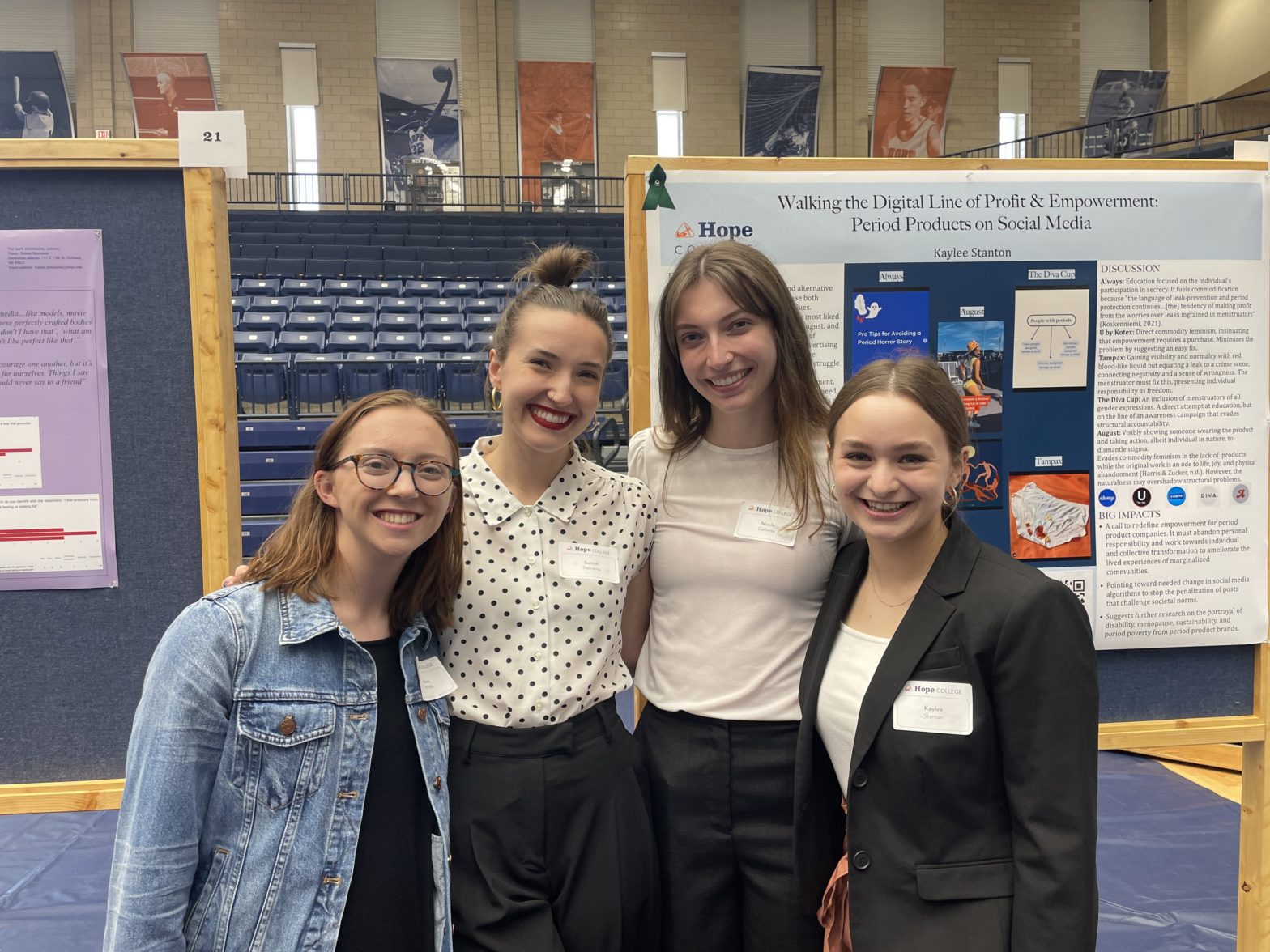Undergraduate research is a distinctive element of the Hope College education and the Women’s & Gender Studies program focuses on student research in WGS 350: Feminist Visions of Justice.

Anna Whittle, Sutton Steensma, Nicole Galloway, Kaylee Stanton
This year, four students showcased their research at the annual Celebration of Undergraduate Research & Creative Activity (CURCA). Moving beyond the classroom, these students applied feminist methodologies to answer pressing research questions pertaining to body positivity, leadership, health and advertising, and climate change. Their research abstracts are excerpted below!
Hope Students and Body Positivity ~ Sutton Steensma
Fatphobia is woven within the fabric of our society. This form of sexism is a tactic of control, manipulating women’s bodies and their perception of self. This control fuels our patriarchal society. The current study used mixed methods, studying the lived experiences of students at Hope College. I found that fatphobia shows itself to be a gendered issue among this demographic–where weight bias has taken form in many ways–specifically impacting and targeting women. Every participant had been impacted by fatphobia in some way, and expressed that the “Body Positivity Movement” is exclusive and requires revisions to make it representative and accessible to all bodies. Additionally, participants expressed a desire to relate to their bodies in holistically healthy ways, which they saw as the intended purpose behind the “Body Positivity Movement.”
Beyond the Binary: Leadership, Gender, and Femmephobia ~ Nicole Galloway
Discourse surrounding gender and leadership varies considerably. This study uses the Business-focused Inventory of Personality scale to assess measures on power and leadership motivation through a self-report survey. With data collected from the survey, this study showcases the perceptions individuals have of their own leadership qualities and how such perceptions may be related to gender. Though discussions on gender and leadership are often focused on difference or the lack thereof, this study argues through the lens of femmephobia that we must move beyond conversations about difference and into conversations about oppression when striving to create a feminist impact on leadership occupancy.
Profit and Empowerment: Period Products on Social Media ~ Kaylee Stanton
Instagram posts from mainstream and alternative menstrual product companies showcase varying styles of branded advertising including product placement, education, and artistic expression. Through an analysis of a collection of the most liked posts from Always, Tampax, U by Kotex, August, and The Divacup, I argue that the combination of environments between Instagram and femvertising results in contradictory and often ineffective messaging about periods where companies struggle between capitalizing on period stigma to sell products and facilitating authentic empowerment. These unique positions of the brands reveal a need to reshape empowerment and display the pitfalls of feminist advertising on neoliberal social media.
The Storytellers of Climate Change ~ Anna Whittle
The evidence of environmental and gender inequalities is clear. Not only are poorer countries affected the most by the pollution from wealthier countries, but climate change affects women in the Global South the most through overlapping layers of oppression. By exploring the intersection of gender and climate change through a diversity of disciplines, this project seeks to develop a sustainable, feminist approach to mitigating climate change. An intersectional lens, storytelling by women, and the inclusion of women in all levels of climate action are critical in the development of a non-hierarchical, polycentric approach to climate change.


